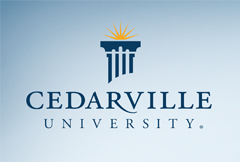Keywords
End of life, salvation
Abstract
In 1 Timothy 2:3, Paul states “God our Savior… wants all people to be saved and to come to a knowledge of the truth” (NIV). In keeping with God’s desire for the salvation of all, Christians should work towards that goal. From an evangelical Christian perspective, upon death, the status of one’s soul is fixed, bound either for heaven or hell.
This perspective should deeply influence our interactions with unbelievers, not only encouraging us to share the gospel, but also giving us an incentive to delay their physical death. Indeed, according to 2 Peter 3:9, the reason God is delaying the final consummation of all things is because “he is patient with you, not wanting anyone to perish, but everyone to come to repentance.” Similarly, Christians should desire to avoid taking away an individual’s chance at salvation. This argument can be a powerful (though not necessarily all-trumping) argument against killing, often used in the context of pacifist or anti-death penalty argumentation, but I contend this argument is also an important consideration for end-of-life ethics in a medical context.
DOI
10.15385/jce.2013.13.1.4
Recommended Citation
Frazer, Michelle E.
(2013)
"End of Life and Saving Souls: Should a Desire for Converts Influence End-of-life Ethics?,"
CedarEthics: A Journal of Critical Thinking in Bioethics: Vol. 13:
No.
1, Article 4.
DOI: 10.15385/jce.2013.13.1.4
Available at:
https://digitalcommons.cedarville.edu/cedarethics/vol13/iss1/4
Creative Commons License

This work is licensed under a Creative Commons Attribution-Noncommercial-No Derivative Works 3.0 License.
Disclaimer
The CedarCommons repository provides a publication platform for fully open access journals, which means that all articles are available on the Internet to all users immediately upon publication. However, the opinions and sentiments expressed by the authors of articles published in our journals do not necessarily indicate the endorsement or reflect the views of Digital Services, the Centennial Library, or Cedarville University and its employees. The authors are solely responsible for the content of their work. Please address questions to the Digital Services staff.
Copyright
© 2013 Michelle Frazer. All rights reserved.
